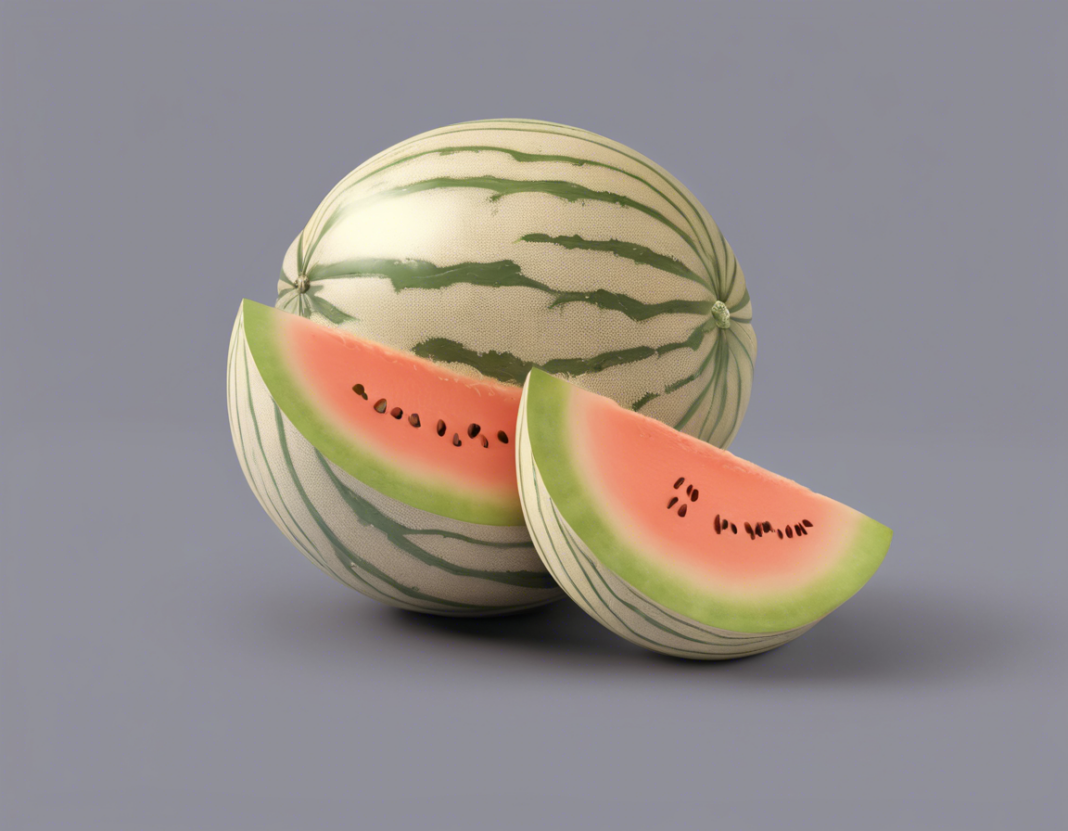Watermelon, cantaloupe, honeydew, and so many more – melons are the epitome of freshness and juiciness, making them the perfect summer treat. Whether you enjoy them on their own, in fruit salads, smoothies, or even on the grill, melons are a versatile and delicious fruit that offer a wide range of health benefits. In this comprehensive guide, we will explore everything you need to know about melons, from their nutritional value to different varieties, how to choose the best ones, and creative ways to incorporate them into your diet.
Nutritional Value of Melons
Melons are not only delicious but also highly nutritious. They are low in calories and packed with essential vitamins, minerals, and antioxidants. Here are some of the key nutrients found in melons:
Vitamin C
- Vitamin C is a powerful antioxidant that helps boost the immune system and promote healthy skin.
Vitamin A
- Vitamin A is important for vision health, immune function, and cell growth.
Potassium
- Potassium helps regulate blood pressure and maintain proper fluid balance in the body.
Fiber
- Fiber is essential for digestive health and can help prevent constipation.
Water
- Melons have a high water content, making them hydrating and refreshing.
Different Varieties of Melons
Melons come in a variety of shapes, sizes, and flavors. Some of the most popular types of melons include:
- Watermelon: Known for its refreshing and juicy red flesh, watermelon is a summer favorite.
- Cantaloupe: This orange-fleshed melon is sweet and delicious, with a subtle floral aroma.
- Honeydew: With its pale green flesh and sweet flavor, honeydew melon is a popular choice for fruit salads.
- Galia Melon: A cross between a cantaloupe and a honeydew, the Galia melon has a sweet and fragrant flavor.
- Casaba Melon: This oval-shaped melon has a yellow rind and sweet, pale green flesh.
Each variety of melon has its own unique flavor profile and can be enjoyed in different ways.
How to Choose the Best Melons
When selecting melons, it’s essential to choose ones that are ripe and flavorful. Here are some tips for picking the perfect melon:
- Look for a uniform shape and color: Melons should have consistent coloring with no soft spots or blemishes.
- Check the stem end: The stem end of the melon should have a slight give when pressed gently.
- Smell the melon: Ripe melons will have a sweet, fragrant aroma.
- Choose melons that feel heavy for their size: Heavier melons indicate juiciness and ripeness.
By following these tips, you can ensure that you select melons that are at the peak of freshness and flavor.
Creative Ways to Enjoy Melons
Melons are incredibly versatile and can be enjoyed in a variety of ways. Here are some creative ideas for incorporating melons into your diet:
- Melon skewers: Thread melon balls onto skewers for a fun and colorful snack.
- Melon salsa: Combine diced melon with onions, peppers, and herbs for a refreshing salsa to serve with grilled meats or fish.
- Melon smoothie: Blend melon with yogurt, mint, and honey for a refreshing and nutritious smoothie.
- Grilled melon: Slice melon and grill it for a few minutes on each side to caramelize the sugars and enhance the flavor.
- Melon salad: Combine melon cubes with feta cheese, mint, and a drizzle of balsamic glaze for a sweet and savory salad.
Experiment with different flavor combinations and cooking techniques to discover new and exciting ways to enjoy melons.
Frequently Asked Questions (FAQs) About Melons
Q: Are melons good for weight loss?
A: Yes, melons are low in calories and high in water content, making them a great choice for weight loss as they help you feel full with fewer calories.
Q: Can you eat melon seeds?
A: Yes, many melon seeds are edible and can be roasted and eaten as a snack or added to salads and baked goods for extra crunch.
Q: How should melons be stored?
A: Whole melons should be stored at room temperature until ripe, then refrigerated for up to a week. Cut melon should be stored in the refrigerator and consumed within a few days.
Q: Are organic melons worth the extra cost?
A: Organic melons are grown without synthetic pesticides or fertilizers, which may be important for some individuals. However, conventionally grown melons are also safe to eat and may be more budget-friendly.
Q: Can you freeze melon?
A: Yes, melon can be frozen for later use in smoothies or sorbets. Cut the melon into cubes, place them on a baking sheet in a single layer to freeze, then transfer to a resealable bag or container for long-term storage.
From choosing the ripest melons to enjoying them in a variety of recipes, melons are a delicious and nutritious addition to any diet. Experiment with different varieties and preparation methods to discover your favorite ways to enjoy these juicy fruits.
